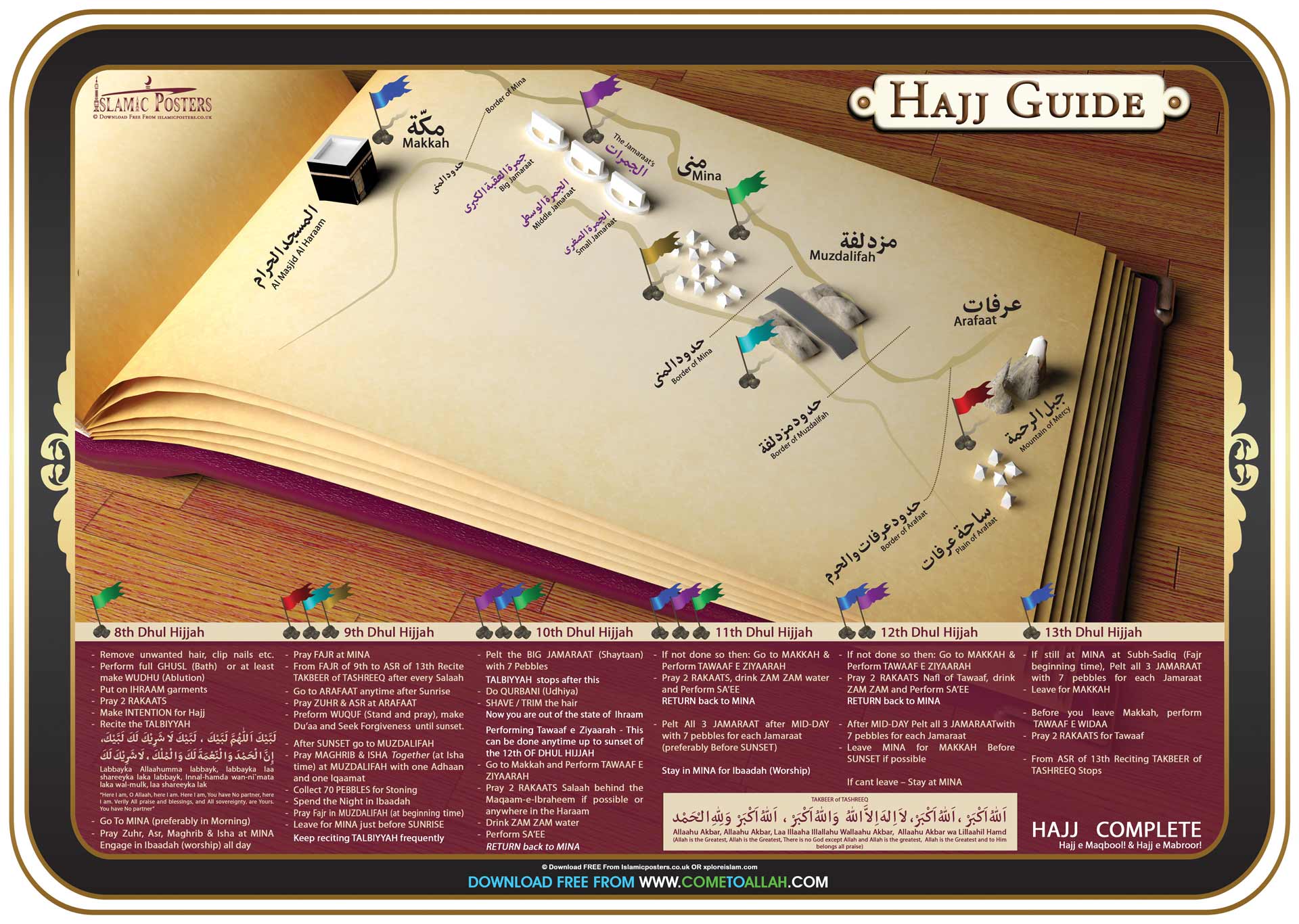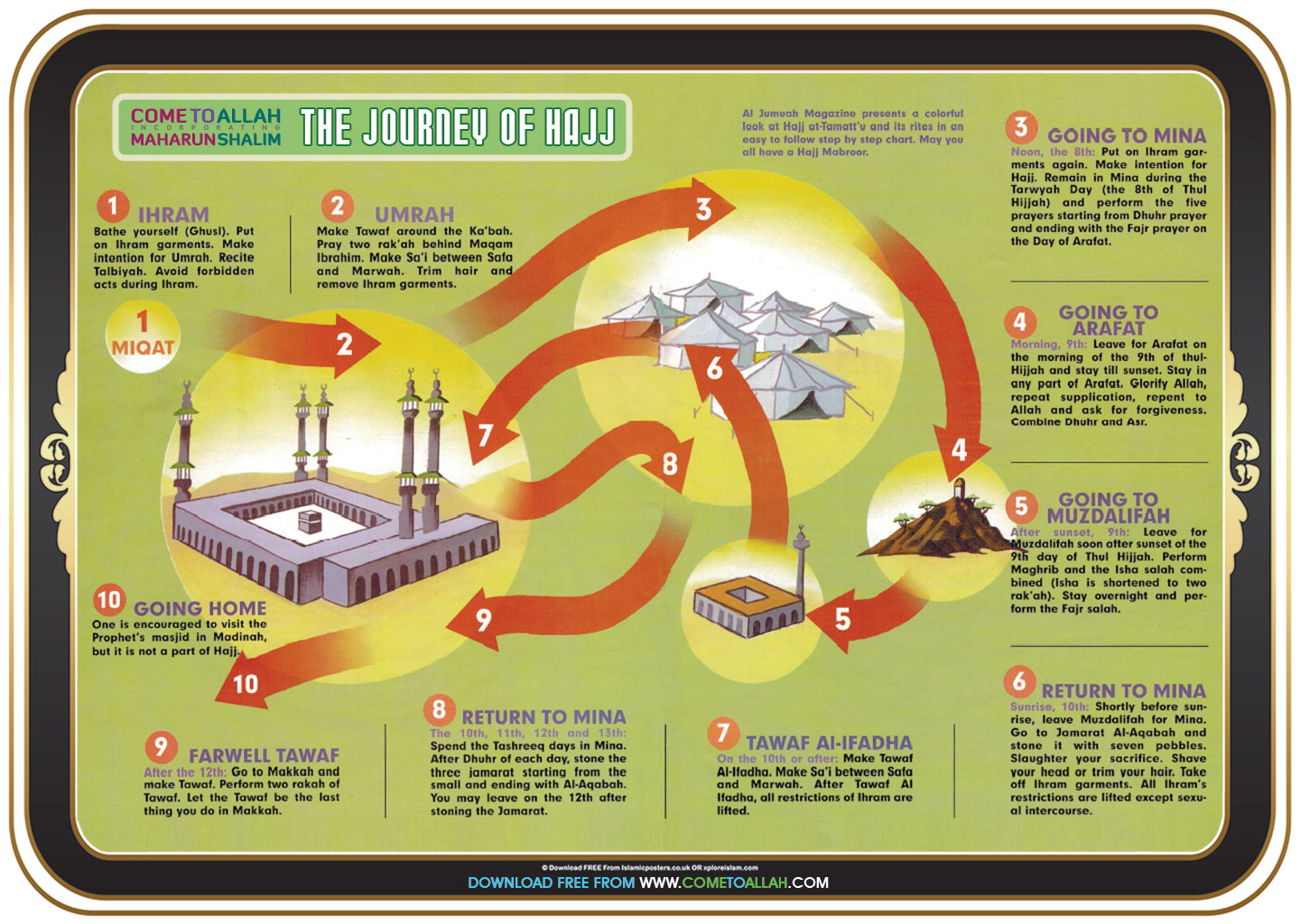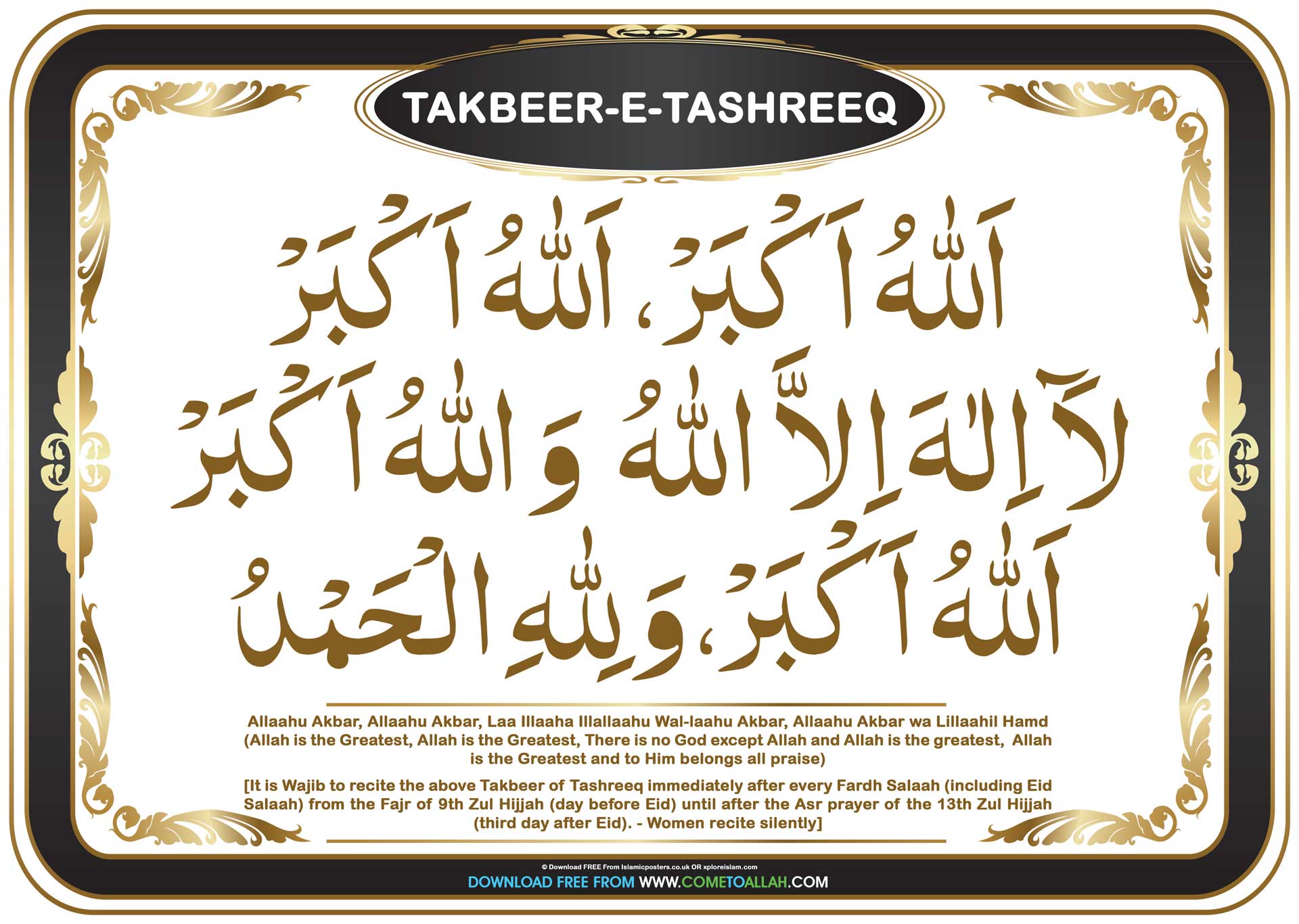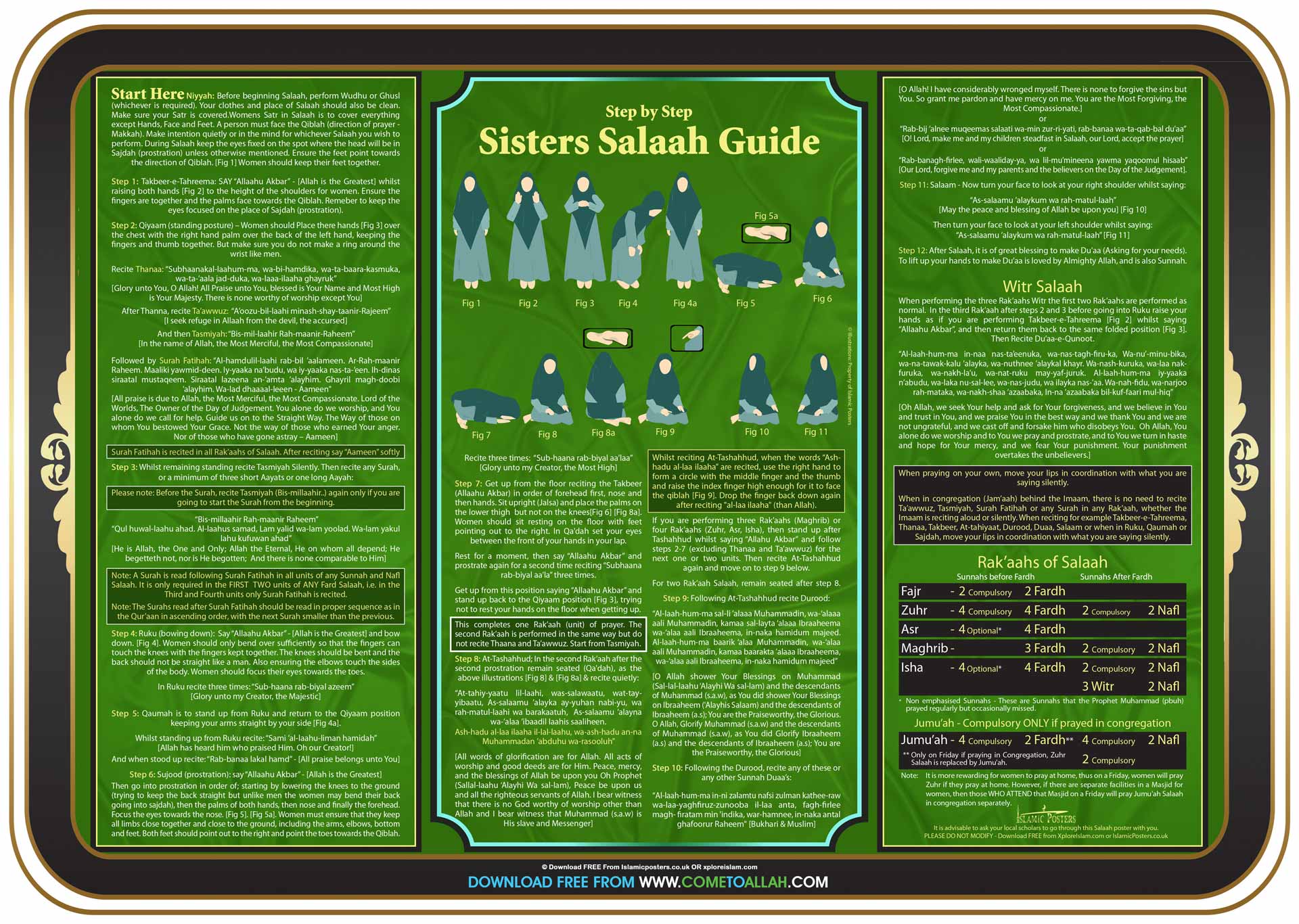﷽
MAKKAH ● LIVE
PLEASE NOTE: WiFi or UNLIMITED MOBILE DATA RECOMMENDED
MADINAH ● LIVE
PLEASE NOTE: WiFi or UNLIMITED MOBILE DATA RECOMMENDED
The Hajj Guide
The Hajj Guide

The Hajj Guide

Takbeer-E-Tashreeq

Sister’s Salah Guide

SUNNAH SALAT
SUNNAH SALAT (Arabic: صلاة السنة) are optional prayers that can be performed by Muslims at almost any time of the day. These prayers are performed in addition to the five daily prayers, which are compulsory for all Muslims. There are a range of prayers available: some are done at the same time as the compulsory prayers, some are done only at certain times, e.g. late at night, and some are only done for specific occasions such as during a drought. All of these optional prayers were originally performed by Muhammad (SAW).
TAHAJJUD
TAHAJJUD (Arabic: صلاة التهجد) prayer is performed at night time, and it is recommended that it be performed after first going to sleep for some part of the evening. Scholars have different opinions about whether sleeping first is absolutely required or not. In Saudi Arabia during the fasting month of Ramadan, there are many people who leave the Tarawih prayers in the main mosque in a hurry so that they can go home, go to sleep, and then wake up to perform their Tahajjud prayers in the early morning. Others simply stay in the mosque and perform these optional prayers before going home.
The time for the Tahajjud prayers falls between the prayer times of the isha’a prayers and the fajr prayers. It is also recommended that the prayers be done in the last third of the night. Muslims believe that the reward is greater for those who do this prayer at a later time. (It is harder to wake up and pray early in the morning, making the person’s effort greater, resulting in a greater reward from God.)
Each prayer for a Muslim is made up with repeated actions: from standing, to bowing on the floor, to standing again is called one raka’ah. The Tahajjud prayer consists of a minimum of two raka’ah and the maximum number is unlimited.
It is reported about the Messenger of Allah (Allah bless him and give him peace) that he said: “Adhere to night prayer, for it is the habit of the righteous before you, and a means of drawing nearer to your Lord; it is an expiation for sins, and a deterrent from wrongdoing.” [Tirmidhi & al-Hakim]
Abdullah ibn Amr ibn al-‘As (Allah be pleased with him) relates that the Messenger of Allah (Allah be pleased with him) said to him, “O Abdullah, do not be like so-and-so, he used to pray in the night then he abandoned night prayer.” [Bukhari & Muslim]
It is recommended that tahajjud be prayed during the last third of the night, but performing it at any other time is better than not performing it at all.
A narration attributed to Aisha reports:
Allah’s Apostle used to offer eleven Rakat and that was his prayer. He used to prolong the prostration to such an extent that one could recite fifty verses (of the Quran) before he would lift his head. He used to pray two Rakat (Sunna) before the Fajr prayer and then used to lie down on his right side till the call-maker came and informed him about the prayer. [1]
TARAWIH
TARAWIH (Arabic: صلاة التراويح) is an optional prayer in that can be done only during the Muslim fasting month of Ramadan. This prayer can be done alone, in a group, at home, or in a mosque or other public meeting area it does not matter. Typically, Muslims gather together and perform tarawih as a group, often amongst extended family members in one large house. Others may meet in their local mosque, a meeting hall, or even in an outdoor field. Depending on the country, the tarawih prayers might be done in mosque by men only, or by a mixture of men and women (although physically separated from each other). The number of raka’ah of Tarawih salat is Twenty. Prophet was afraid that if he continued to perform the prayers in the mosque, then his followers might come to think that they were compulsory and not optional.
After the death of Prophet Muhammad (SAW), the number of raka’ah was increased to twenty instead of eight by the second Caliph, Umar. Muslims now choose for themselves how many raka’ah to perform. In the main mosque in Mecca, the Imam (prayer leader) performs twenty raka’ah followed by a further three raka’ah known as witr prayers. The total number of people joining the tarawih prayers in the main mosque in Mecca may reach 3-4 million. They fill up all levels inside the mosque, the flat roof, outside in the courtyard, some nearby streets (which are closed off), and on occasions even using up space in the lobbies of some nearby hotels.
It is also customary for the Imam in Mecca‘s main mosque to recite the entire contents of the Qur’an during the fasting month by reading approximately one section per day. This practice of reading the Qur’an completely is known as khatm (complete recitation).
REFERENCES
-
Sahih Bukhari, Book 2, Volume 21, Hadith: 223
-
http://islam.about.com/cs/prayer/a/eclipse.htm
-
http://www.islamonline.net/servlet/Satellite?cid=1119503547604&pagename=IslamOnline-English-Ask_Scholar/FatwaE/FatwaEAskTheScholar
-
Data Source: https://en.wikipedia.org/wiki/Sunnah_salat
